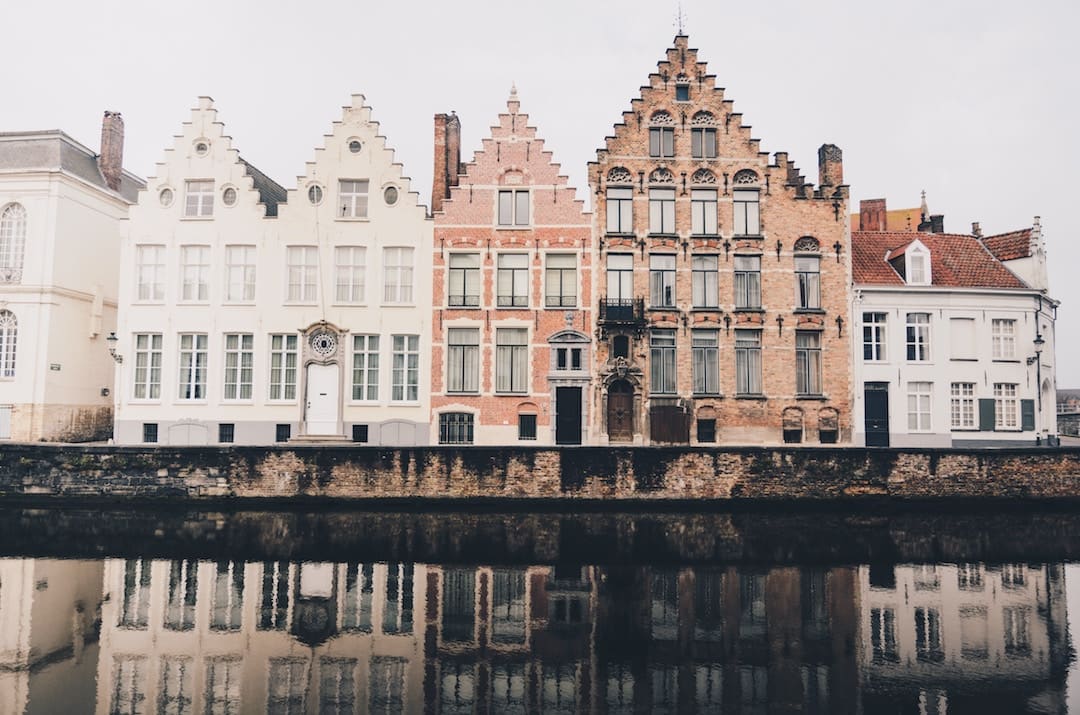There’s no doubt about it, that France is one of the most inspiring, romantic and exciting destinations in Europe or even the world, for that matter. But, for a first-timer or even a seasoned traveller, it can be near impossible trying to decide where to go, what to see and more. This, of course, is why taking a tour to explore what France has to offer might just be perfect for your next adventure. A great idea? We think so.
If you’ve decided that a tour is the best option for you to explore the beauty of France, here’s how you can best prepare for your tour and make sure you know exactly what to expect.
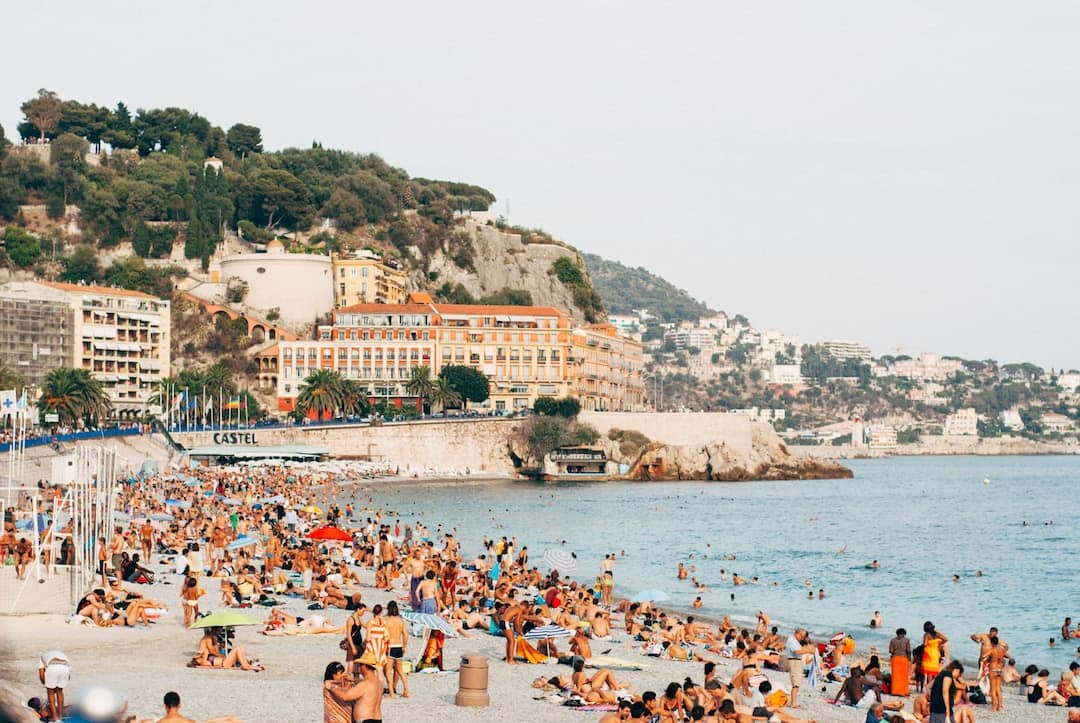
Arriving in France
Prepare for sensory overload as you step into France for the first time. With all of the sights, new friends you’re about to meet and the local experiences that you’re about to encounter, it’s always a wise idea to give yourself some time to unwind after your flight, so arriving the day before the tour begins will set you on the right track. This also means that if you’re unlucky enough to encounter a delayed flight or lose your luggage, you can rest easy and reduce unnecessary stresses when trying to meet your tour group on time.
It’s worth asking for pre-tour accommodation options once you’ve booked your tour and they can be easily booked as an add-on to your tour package. The same goes for departures. If your tour includes any activities on the last day, it’s often more comfortable to stay an extra night before flying home.
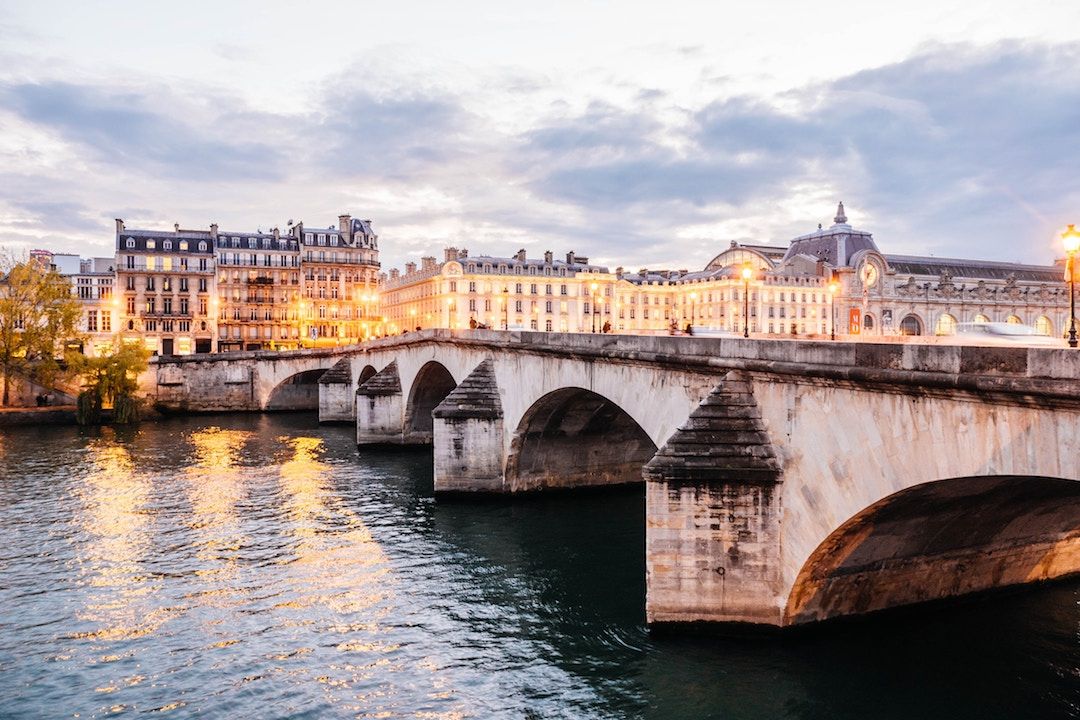
When to visit France
From the northern shores to the French Riviera, France has something worth seeing year-round, but keep in mind that peak tourist season lasts from May through September. During these months, be prepared for long queues at major attractions, and for most restaurants to be busy. Sometimes, the odd worker’s strike will occur in summer, so if it does, make sure you’re patient and take it all with a good sense of humour while you are on tour. A bonus of being on tour is that you often get to skip the queues for famous landmarks like the Eiffel Tower, depending on the operator and arrangement they have with that local organization.
Your tour guide will be a great source of information when it comes to booking things ahead, like museums or restaurants and might even have some secret tips for skipping queues at certain hot spots. Remember that it’s pretty much your tour guides job to know all the best secrets of a city they travel through, so don’t hesitate to pick their brains to learn the hidden gems only locals and frequent visitors know about. As for the experiences that you will find during your tour through France, you can almost guarantee that you will visit, stop for a photo, or drive past the Eiffel Tower. Other unique experiences on your tour might include a lively cabaret show, a guided tour with a local historian to deeper into the history of the D-Day Landing Beaches in Normandy, a bike ride across the Vaucluse Plateau or a visit to architectural feats accompanied by a local expert.
It’s also worth checking the calendar before you leave home to be prepared for any public holidays that fall within your tour itinerary. Many restaurants and stores close on these days, in cities and small towns alike, so it’s wise to be one step ahead. You might even find time for a picnic in true French style – an experience often included by operators as a surprise for travellers.
Culture and people in France
While Paris is the ‘City of Love’, some visitors to France complain that the French are, well, a little bit more ‘abrupt’ than others. We beg to differ. France is a proud nation and the French have welcomed travellers to their land for hundreds of years. However, it is true that they will not be judged and they will certainly not conform or dilute their rich culture. As long as you visit France with an open mind and offer the kind of respect any traveller should practice abroad, you will have a wonderful time travelling the country.
One of the key ingredients for success in this sense is learning basic phrases in French to cover the formalities. As a rule of thumb, try to approach every conversation in French by asking, ‘Excusez-moi, parlez-vous Anglais?’ You’ll be pleasantly surprised as to the difference in reaction compared to diving in English-first! There are plenty of resources online and in print with basic phrases to help you along.
Accommodation in France
Who doesn’t want to be sleeping in a quaint little hotel right on the town square, with flower pots on the window sill and the perfect view for people-watching? If you are lucky enough to be booked into a hotel like this on your group tour, we’re here to tell you that your room is likely to be smaller than you might expect. Tiny, authentic properties across France were not built for hundreds of visitors at a time which of course, is all part of the allure and mystery of exploring new places.
This is authentic French charm at its best, and while it might seem quite different to the super resorts across Asia that you can easily find on a budget, just remember you’re enjoying the unique style of French accommodation. Yes, admittedly, it might be annoying if you have had to carry your luggage up the stairs and your bathroom will likely be a little ‘dated’ to say the least, but at the end of the day, this is France and it’s unapologetically authentic.
Multi-day tour groups, both big and small, will experience small hotel rooms in France, guaranteed, from Paris to Nice, to the country chalet or guesthouse. Whichever type of property you end up at, take it all in and enjoy the unique experience. Some operators, including Contiki, boast feature properties such as the Château de Cruix in France surrounded by rolling vineyards, a pool and a nightclub aptly called ‘The Cave’ located the château grounds – you’ll never want to leave.
A final note on accommodation, travellers should know that while double occupancy rooms almost always have two beds pushed together, single occupancy rooms will often be a snug single bed, and not a double bed. You’ve been warned.
Dining at restaurants in France

Who doesn’t come to France with a list of must-eat foods? French cuisine is famous around the globe and not long after your arrival, you’ll understand exactly why. From provincial farmhouse meals to haute cuisine, from the noble freshly baked baguette to the framboise raspberry tart, the list of French edible delights are endless. Most importantly, depending on what style of tour you go for, you might be lucky enough to experience a tasting session of freshly picked truffles at a truffle farm in Bordeaux, or meet with an artisan winemaker and learn more about local produce. If this sounds like your kind of experience, there are plenty of tours that focus on culinary delights in France for you to enjoy.
But, a word of wisdom to the first-time traveller – take it easy. French food is seriously rich (and decadent) and the temptation to take it all in can be overwhelming. Moderation is the key, so mix up your selection of cheeses and pastries, rich beef bourguignon and indulgent duck à l’orange with salads, soups and fresh fruits.
Bread and water are compliments to a typical French dining experience. Sometimes they are provided for you, but when this is not the case, you can simply ask your waiter for bottled or tap water. If they are provided without you asking for them and you don’t want to pay for the bread or water, simply don’t eat or drink them. Keep in mind though, where these staples are provided, it is a sign of complete service, not a ploy to drain your wallet.
Waiting tables is a respected profession in many countries in Europe and France is no exception. It’s important to note that while tipping your waiter in France is commonplace, the way to earning this gratuity is not through the American way of ‘the customer is always right’. The waiter is to be respected, as is a reasonable (relaxed) pace of service and the quality of your food and drink. This all takes time and eating while stressed is bad for digestion, so sit back, relax and let time while away.
Before you can say, “How can I possibly relax and enjoy a slow meal while I’m on tour?” first of all, there is plenty of free time while on tour. Everyone has different priorities when travelling which multi-day tours allow for. Also, lucky for you, France has no shortage of good food ‘to go’ if you opt not to spend all afternoon at a restaurant. Crêpes stands, baguettes, patisseries, allow for plenty of options if you’re short on time.
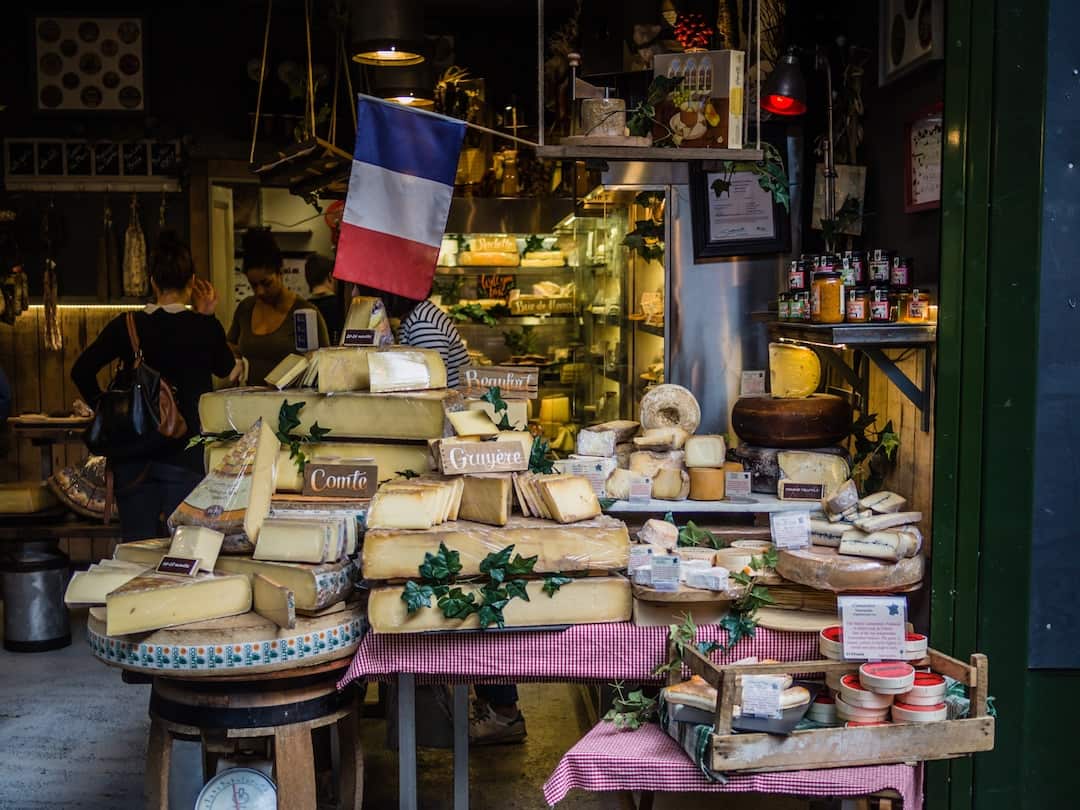
Security and cash in France
France is just as safe as any other European country, but that doesn’t mean you can be careless. Sadly, pick-pockets still continue to operate in populated tourist areas and on public transport. The smart traveller will only carry the valuables they need and always have their zipped bag in front of them in busy areas – right where you can see it.
While it’s important to have some cash on hand, too much leaves you vulnerable, so we recommend a bank card, free of international bank fees which you can use to withdraw cash throughout your stay. It’s best to look for a larger bank like BNP Paribas in the bigger cities, where you can access a cash machine in the foyer. This way you can also hold someone responsible if the machine eats your card! On that note, it’s also wise to never keep all of your bank cards in one place and consider bringing a duplicate which you can leave in your suitcase for emergencies.
Your hotel room, for the most part, is safe and secure, so you can leave valuables in your room when you don’t want to carry them around. Most hotel rooms will have a safe and if not, there might be a security deposit at the reception that you can request to store your valuables in. Most importantly though, keep all valuables out of sight from housekeeping or even lock them in your suitcase while you’re out.
It’s also wise to be aware of areas of larger cities that are not safe at night, which your tour guide can point out for you. The romantic streets of Montmartre, frequented by the likes of Edith Piaf, Picasso and Ernest Hemingway, may not be so inviting after dark!
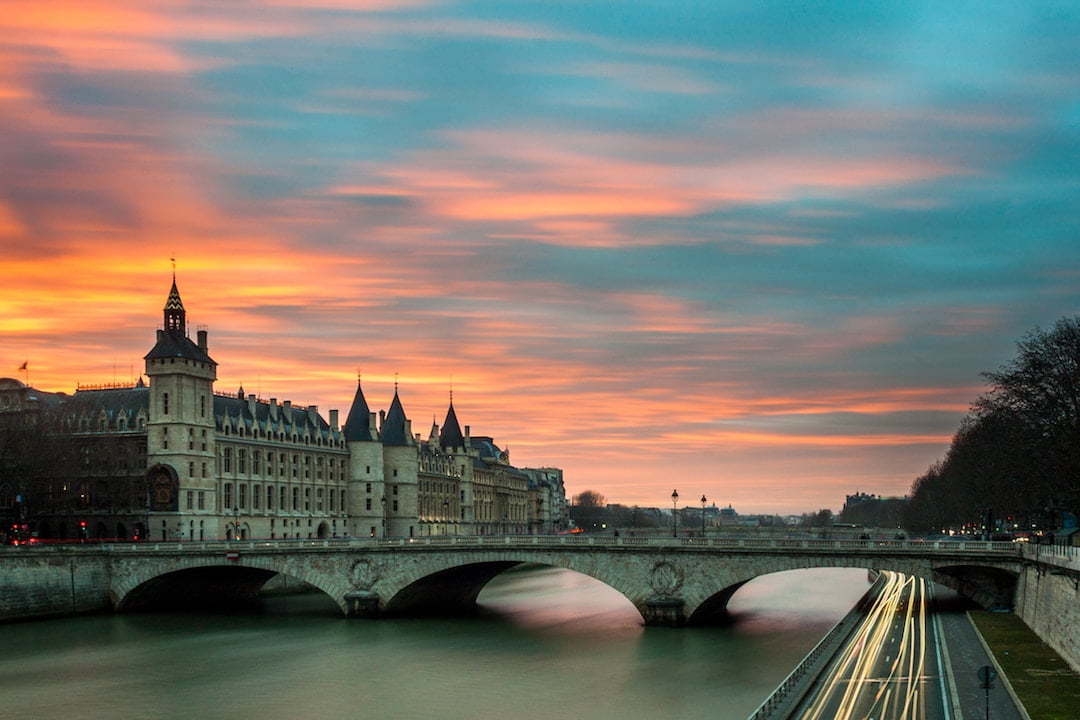
What to wear in France
Just as famous as French cuisine is French fashion. While rural towns will see people dressed in comfortable, quality clothes, the streets of Paris and Nice will have you feeling a little underdressed in a sweater and shorts. Comfort is important for you though as the best way to get around most places you’ll visit, is on foot, so comfortable shoes are a must. The cooler months warrant a jacket, scarf and leather boots, while summer is perfect for light trousers and shirts.
If you’re a shopper, we recommend you arrive with a suitcase only partially filled as you’re bound to succumb to the bargains you’ll find. And what better souvenir from your time in Paris, than an item of clothing you can expect to be complimented on back home, conveniently giving you the opportunity to tell your admirer, “Oh this old thing? I bought this in Paris!”
So, what’s the verdict on touring in France?
All in all touring is a great way to visit France, with unforgettable experiences paired with as much or as little guidance as you need from your tour guide. You’ll be able to cross off both the famous bucket-list items then conquer alternatives you didn’t even know existed. Just remember that your priority should be relaxing and embracing the French style of living. Don’t take on too much in your daily schedule, you’re bound to come back someday!
Do you have any further questions about what it’s really like to go on a multi-day tour to France? Comment below, and we’ll answer any and all questions!

